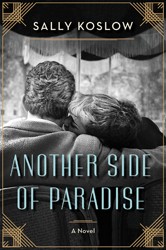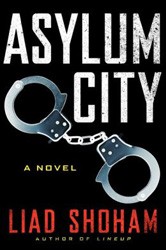Like the cacophonous sound of the streets of Cairo, Light of My Eye,is a noisy and crowded novel: crowded with themes, family members, andpolitical uprisings. While it would appear that this is a story ofexile, and the repetitive mention of the word “wanderer” wouldsubstantiate this claim, it is just as much a story of growing pains:troubled familial relationships, the coexistence of Arabs and Jews, andof a community of females in a man’s world.
On the simplest level, Light of My Eye is thecoming-of-age story of Mona Castro, a Jewish child growing up in Cairoin the 1950’s. Writing in shifting points of view, Jacques tells thestory of Mona’s dysfunctional relationship with her mother, Rebecca, andof her almost Oedipal love for her father. Neither mother nor daughteris a likeable character: Rebecca is narcissistic, selfish, and nostalgicto a fault; Mona is self-absorbed, innocent, and often cruel.Throughout the novel, the two are continually embroiled in battles, eachseeking allies and each desirous of unconditional love.
With these character descriptions in mind, and the veryjuxtaposition of scenes— chapters detailing family arguments next tochapters describing political takeovers — coupled with Jacques’intentional shifts in points of view and their placement in the novel,there is perhaps a subtle subtext here. It may well be that Rebecca isJacques’ embodiment of Egypt’s past and Mona, its present and future. Ifthat is the case, Light of My Eye is clever and cohesive.





